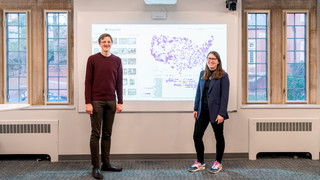
The Presidential Advisory Group on AI at UR (PAG-AI) is charged with developing an action plan for advancing AI at UR, including identifying areas of priority and potential use cases, implementation strategies, key colleagues to involve, key tools (both existing and new) to utilize, data collection and metrics for assessing progress, resources required, and costs and benefits of possible decisions. The group may also discuss data security and privacy considerations and make recommendations to the administration for relevant policy updates.
The committee will have a set of initial recommendations by the end of the December 2025 and will develop a final set of recommendations by the end of March 2026.
Generative AI: A Brief Primer
This primer provides foundational knowledge about generative AI, covering its definition, how it works, a comparison of widely used tools, key capabilities relevant to higher education, limitations and considerations for implementation, and the potential impact areas within academic settings, ensuring everyone has a common understanding.




